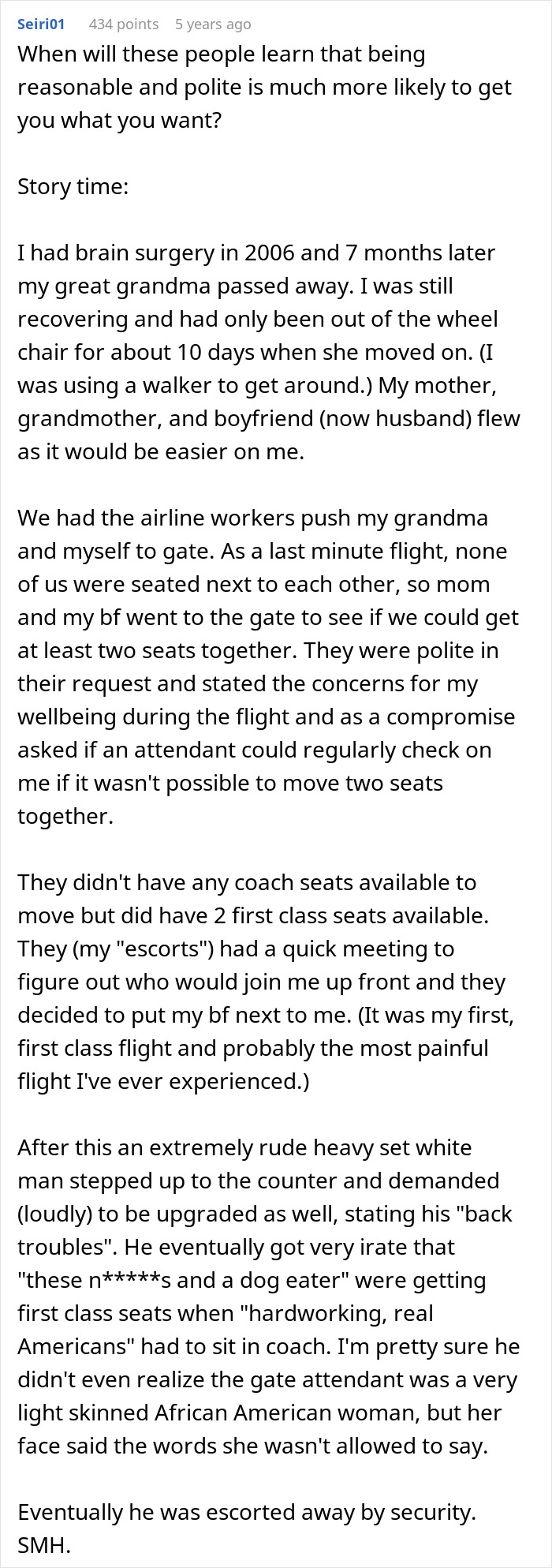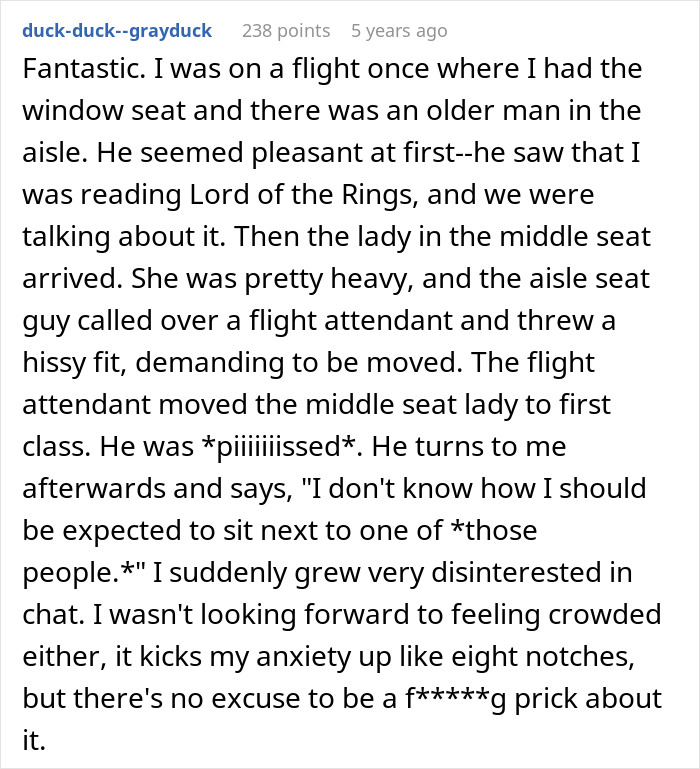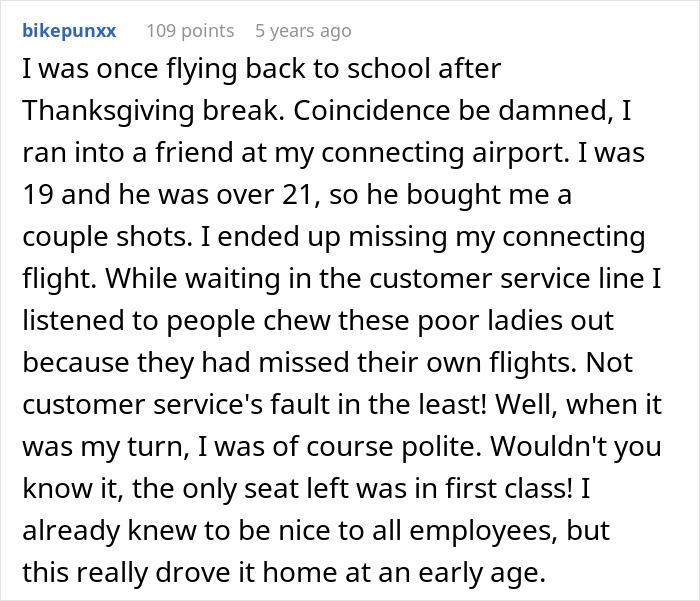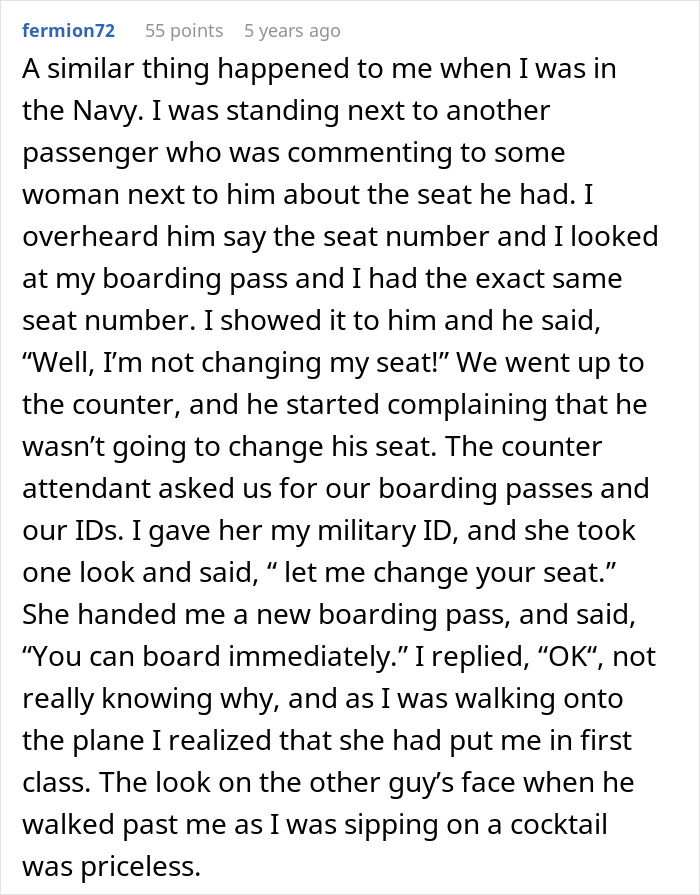As more people opt to travel by plane, air travel becomes more and more exhausting. In 2020, there was a total of 369 million passengers in the U.S. That’s thousands of flights where someone is whining about a baby crying and people stinking up the plane after kicking off their shoes.
One Redditor shared an old-school air travel story about how their mother dealt with an entitled passenger. The man demanded an aisle seat but decided to be rude about it. The airline clerk maliciously complied with his request and proved that sometimes jerks can be put in their place by simply following the rules.
We asked an expert what the correct seat-switching etiquette on an airplane is. Etiquette expert Myka Meier kindly agreed to lend Bored Panda her expertise. Meier is the founder of Beaumont Etiquette and co-founder of the Plaza Hotel’s Finishing Program, and she told us the polite way to approach others when switching airplane seats.
More info: Beaumont Etiquette | Instagram
Many people would avoid sitting in the middle seat of an airplane if they could
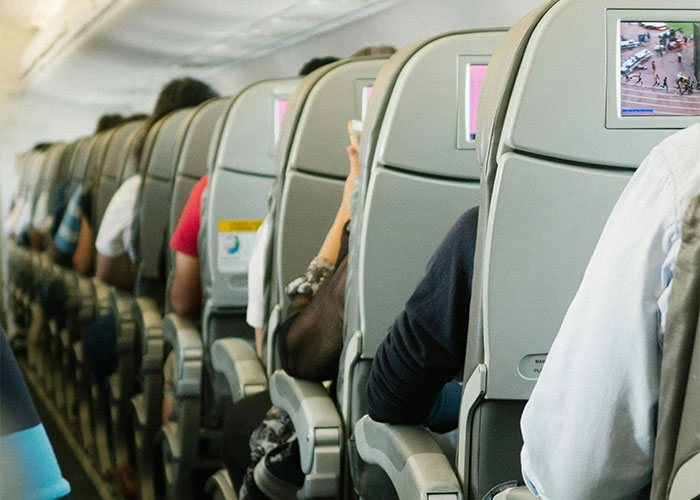
Image credits: Athena Sandrini / pexels (not the actual photo)
So did this man, but his rude attitude in wanting to change seats paid off for another passenger more than him
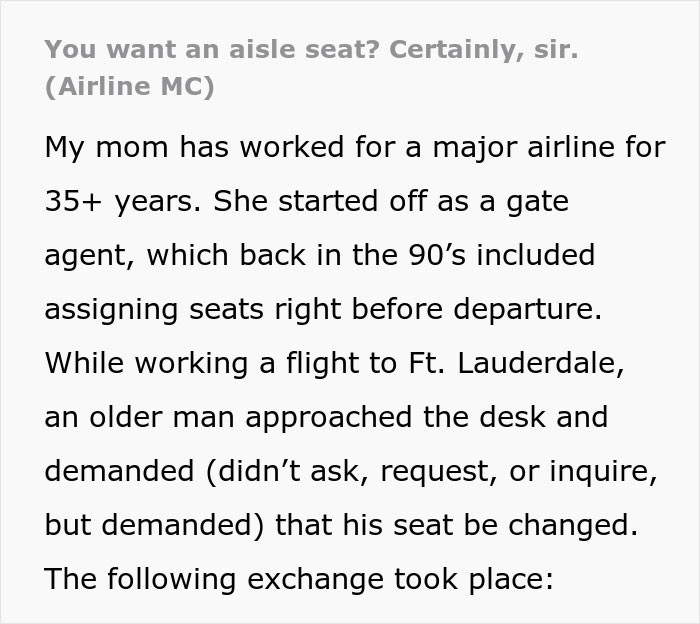
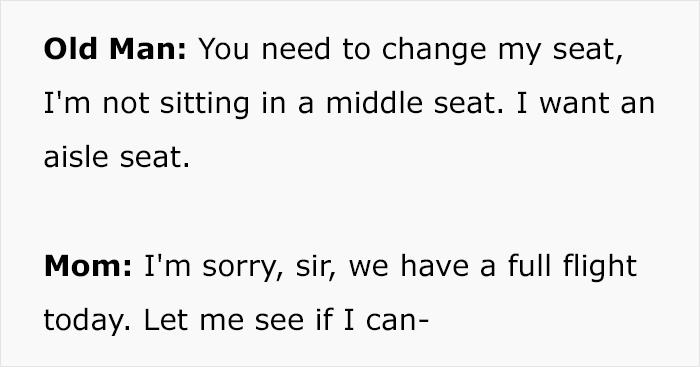
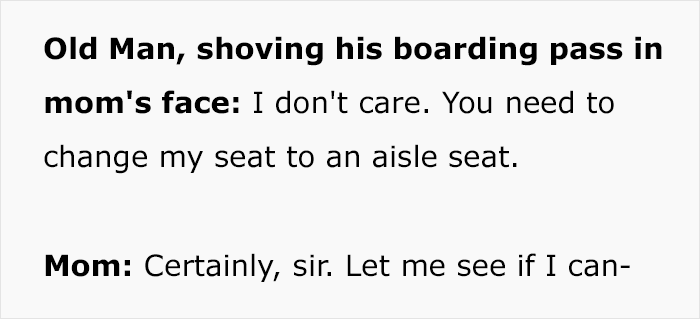

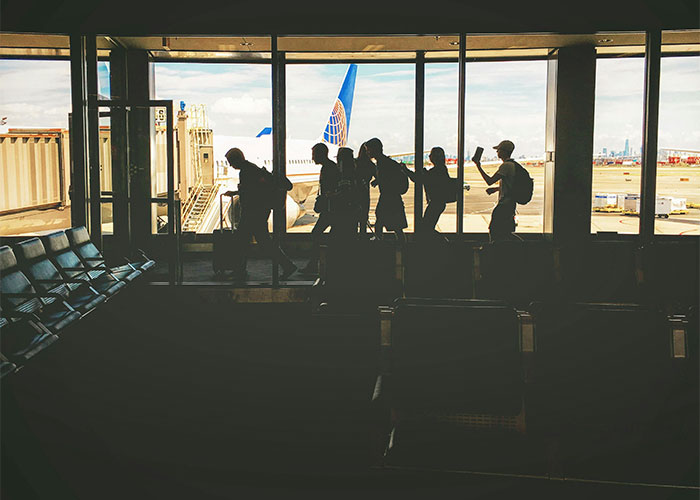
Image credits: Tim Gouw / pexels (not the actual photo)
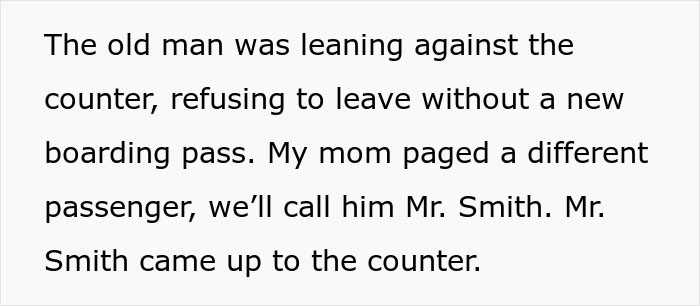
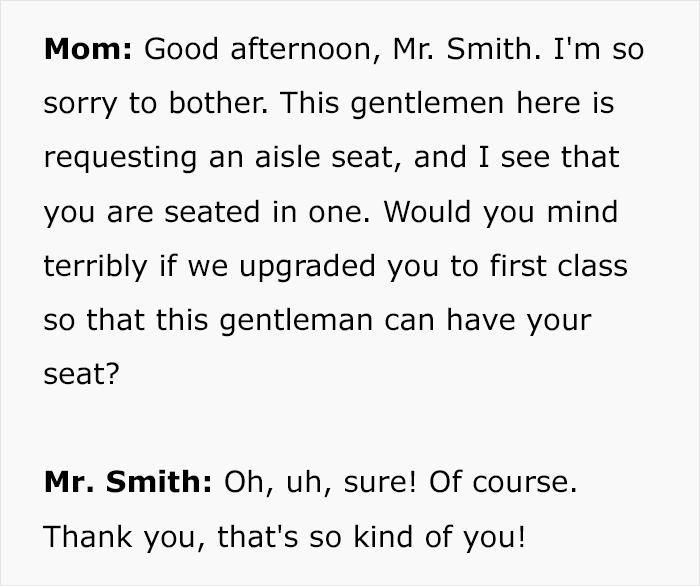
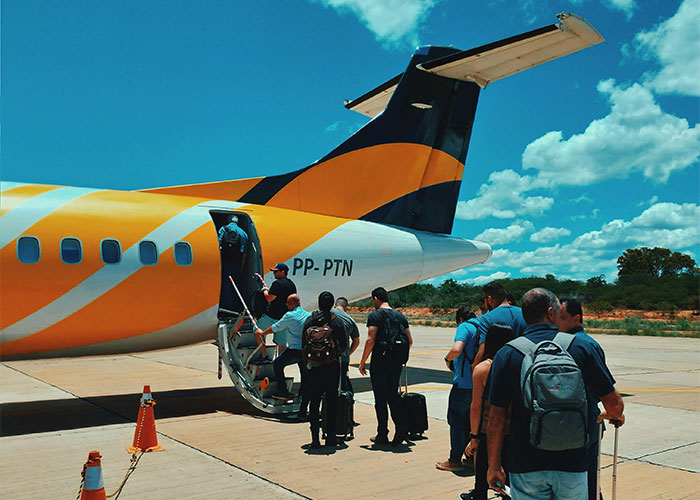
Image credits: Natã Romualdo / pexels (not the actual photo)
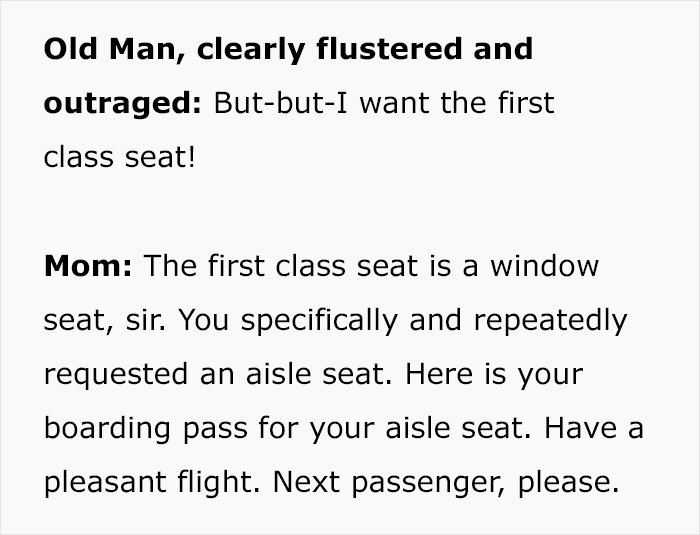
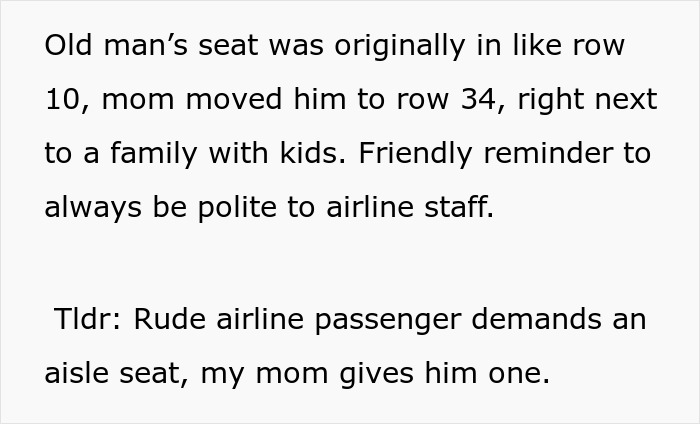
Image credits: kitteh_pants
When asking to switch seats with someone, be polite, explain your reason, and offer a comparable seat option
“Switching seats on a plane can be a delicate matter, and there are certain etiquette guidelines I recommend following if you wish to ask someone to switch seats with you,” distinguished etiquette expert Myka Meier says.
The first thing to keep in mind is not to cause a scene. “Be polite and respectful when you both approach and speak to the person you are asking,” Meier explains. “Approach with a friendly demeanor and use polite language. A smile and a ‘Please’ go a long way.”
Communicating your reason why you wish to switch seats is important, too. “In order to have the best chance of the person saying ‘Yes’ to a seat switch, it’s important to explain your reason,” Meier adds. “Briefly state why you’d like to switch seats, and if it’s to sit with a family member or because of a special need, people are often more understanding.”
Third, Meier says, try offering something in return — a comparable or better seat option. “Try to offer a seat that is similar or better than the one you are asking the person to give up. Sometimes, asking a flight attendant ahead [of time] to help you locate any open seats gives you choices to offer.”
If none of the above works, there’s nothing else you can really do. “It’s good manners to accept ‘No’ graciously,” Meier believes. “You can’t force someone to give up their seat, so respecting the other passenger’s decision if they decline is good manners.”
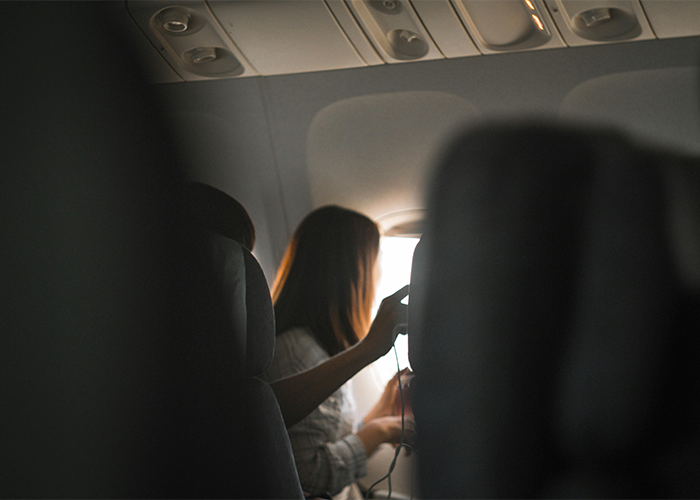
Image credits: Sergey Zhumaev / pexels (not the actual photo)
Airline staff are there to ensure a smooth and pleasant experience, but that doesn’t mean passengers can be rude to them
Flight attendants and airline staff, in general, play a major role in keeping things in check before, during, and after a flight. Some airlines now train their employees in conflict resolution. Like American Airlines, which started training their 65,000 employees in 2018 after a particularly unfortunate incident was posted on the Internet.
Meier says that the biggest job of flight attendants and other airline employees is to ensure the safety of the passengers on board. “They also are key in providing assistance for everything from meals to issues onboard and keeping passengers comfortable. They help with seating, answer questions, and assist with special needs.”
“Flight attendants are also typically the best person to speak to when passengers have conflicts. They are supposed to resolve disputes between passengers diplomatically and as fast as possible,” Meier explains.
However, that doesn’t mean that passengers can be rude to flight attendants or gate agents. The same rule that applies to approaching other passengers is applicable here: a smile and a “Please” go a long way.
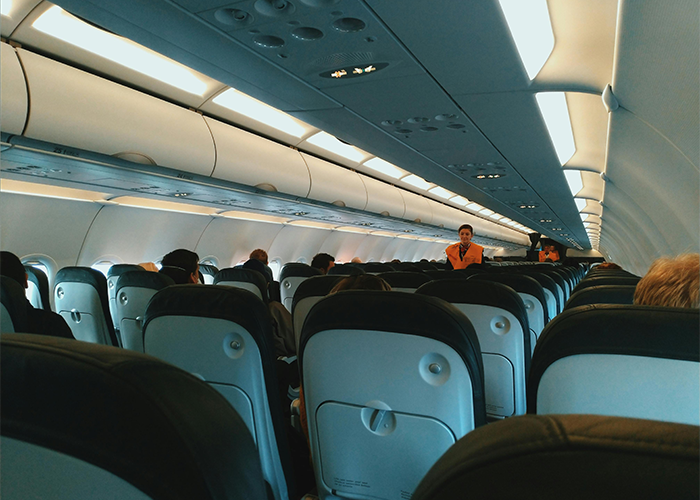
Image credits: Natã Romualdo / pexels (not the actual photo)
There are other common rules of airplane seat etiquette that passengers ought to follow
We asked the founder of Beaumont Etiquette and etiquette expert Myka Meier what other rules passengers should follow so that the experience is pleasant for all. She has five recommendations for every person on board a flight to follow:
- Respecting the personal space of others is one of the most important things on board a flight. Be mindful of not going into your neighbor’s space – from a foot to hair over the seat. Keep your arms and legs within your seat area as much as possible.
- If you recline your seat, do so gently and check that the person behind you is not in the middle of eating or using their tray table.
- Keeping noise down is key, as any time there is a communal or shared space, it’s important not to force others to listen to your music/movie/game, etc. Use headphones for electronic devices, and try to keep conversations and other noises to a reasonable and respectful volume.
- Use the overhead bins considerately, and don’t take up too much space so there is room for others.
- Be mindful of bathroom breaks, especially if you’re in the aisle or middle seat.
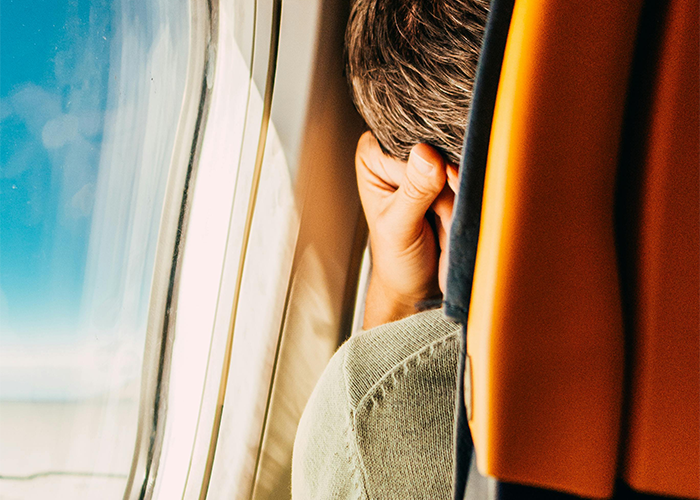
Image credits: Ricardo Oliveira / pexels (not the actual photo)
The author agreed with other people that their mother dealt with the situation in a classy and composed manner
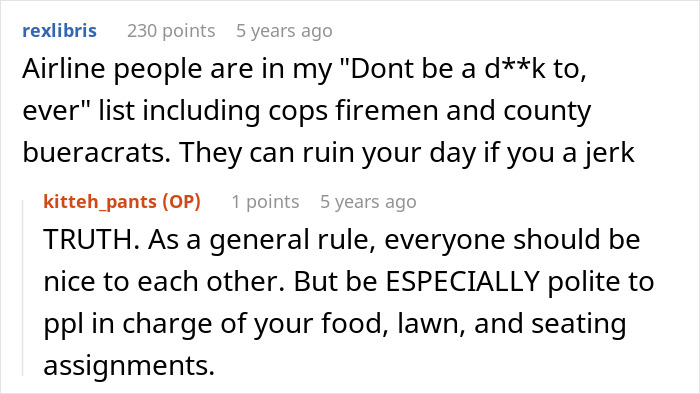





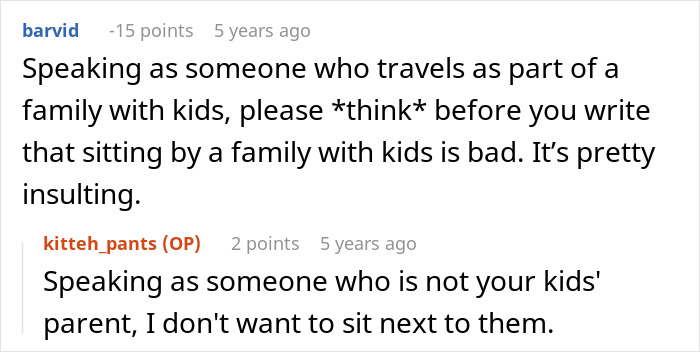
Others couldn’t believe the level of entitlement the man showed





As stories like these happen often, other netizens had their own tales to share
